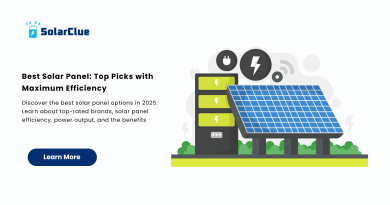Solar Panel Install Requirements
As the world continues its search for sustainable and renewable energy sources, solar panel systems have emerged as one of the most efficient and eco-friendly alternatives. The advantages of solar energy are numerous, ranging from cost savings to minimising one’s carbon footprint. However, such a significant project like solar installation requires careful preparation and understanding of the prerequisites. This informative article outlines the fundamental requirements of solar panel installation, facilitating the decision-making process for homeowners and property owners seeking to venture into solar energy’s rewarding world.
Table of Contents
Choose the Right Solar Panels
The market is flooded with a wide array of solar panels, with each model offering different efficiencies, outputs, and price ranges. High-quality panels provide higher energy efficiency, leading to more financial savings and a quicker return on investment. Therefore, choosing the right solar panel is a vital step that involves meticulous research and comparison shopping to suit your budget and energy needs.
Understanding Building and Fire Codes
Building and fire codes vary from state to state and are applicable for solar installation as well. Fire codes dictate how close panels can be to the roof’s ridge, ensuring ample space for firefighters in the event of an emergency. A professional solar installer should be familiar with these codes and ensure that your system is compliant.
Inspection of Your Roof’s Condition
The roof’s condition significantly impacts the installation process. A durable and structurally sound roof is mandatory since the panels can be heavy and need to survive harsh weather conditions. Furthermore, the roof’s orientation, slope, shading patterns, and size are weighed as these factors influence the system’s efficiency. Additionally, it’s advantageous if the roof has a southward orientation for maximum sunlight exposure. If your roof requires repairs or upgrades, it is always better to complete it before installing the solar panels.
Planning for Energy Consumption
Understanding your home’s energy needs is crucial to determining the size and configuration of your solar panel system. Take note of your household’s energy usage pattern over a year to account for seasonal changes in consumption. This information helps the installer to customize a system that meets your exact energy consumption needs.
Obtaining Necessary Permits
Securing relevant permits and documentation is an important prerequisite before initiating the installation process. These permits may include building permits, electrical permits, and utility interconnection agreements, depending on your local and state regulations. Hiring a professional solar installer can simplify this process since most companies will handle paperwork and permits on behalf of the homeowner.
Financial Incentives and Solar Rebates
Investment in solar energy often comes with tax incentives, rebates and federal tax credits, designed to make solar more affordable for homeowners. Review the current policies in your jurisdiction as they can significantly offset the installation costs, bring down the cost of your system, and beneficially shorten the payoff period.
Grid Connection
If you plan to connect your solar array to the local power grid, it’s necessary to work with your local utility company to ensure proper interconnection. It may include installing a two-way meter to monitor the electricity you generate and consume. Connectivity to the grid allows you to sell excess power back to the utility, helping further offset electricity costs and return on solar investment.
Conclusion
Solar panel installation is more than merely installing panels on your roof; it’s a significant investment that requires careful planning, understanding, and consideration. To successfully embark on this solar journey, understanding the installation requirements is a vital step towards optimising the benefits of your solar panels. It’s imperative to conduct in-depth research, understand local regulations and potentially hire a professional solar installer. This preliminary groundwork can help ensure a smooth installation process, maximise energy efficiency, and pave the way for a greener, more sustainable future.




